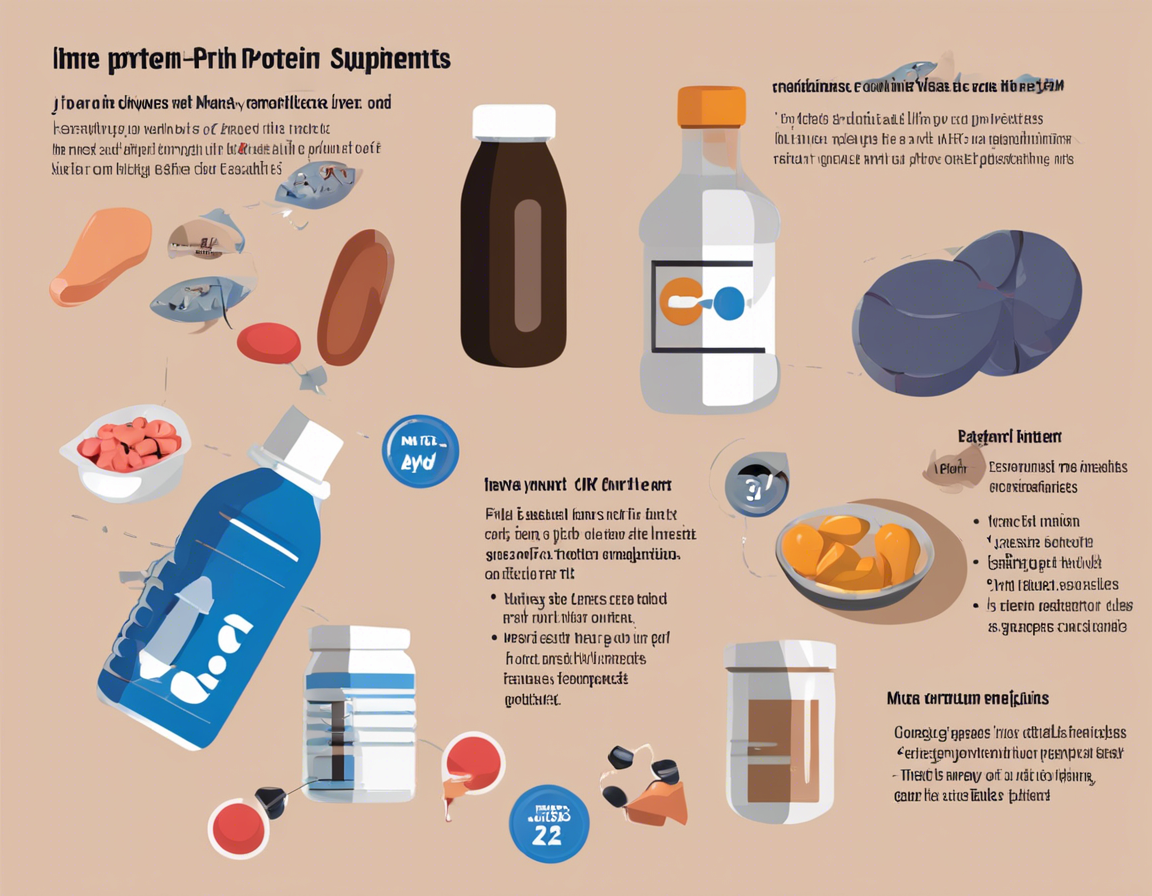The Indian Council of Medical Research (ICMR) recently released a set of guidelines urging individuals to exercise caution when using protein supplements. This recommendation comes amidst escalating concerns about the indiscriminate use of such supplements and their potential health implications.
Understanding Protein Supplements
Protein supplements are concentrated sources of protein, often in the form of powders, shakes, or bars. They are commonly used by individuals to boost muscle growth, aid in weight loss, or as a convenient source of protein intake for those with busy lifestyles. While protein is an essential nutrient for the body, it is preferred to obtain it through a balanced diet rich in whole foods such as lean meats, dairy products, legumes, nuts, and seeds.
The Hazards of Protein Supplements
1. Overconsumption of Protein
Consuming excessive amounts of protein, especially through supplements, can strain the kidneys as they work to eliminate the by-products of protein metabolism. This can potentially lead to kidney issues in the long run.
2. Nutrient Imbalance
Relying on supplements for protein intake may result in missing out on other essential nutrients that are typically obtained through a varied diet. This imbalance could have long-term repercussions on overall health.
3. Quality and Safety Concerns
The quality and safety of protein supplements are not always guaranteed. There have been instances of contamination with harmful substances or inaccurate labeling, leading to adverse effects on health.
Alternatives to Protein Supplements
If you are looking to increase your protein intake, there are several natural alternatives that can be incorporated into your diet:
- Lean meats: Chicken, turkey, and fish are excellent sources of high-quality protein.
- Dairy products: Greek yogurt, cottage cheese, and milk provide a good dose of protein.
- Plant-based sources: Lentils, beans, quinoa, and tofu are rich in protein and offer additional nutritional benefits.
- Nuts and seeds: Almonds, chia seeds, and hemp seeds can be added to meals or snacks for a protein boost.
FAQs about Protein Supplements
1. Are protein supplements necessary for building muscle?
While protein supplements can be convenient, they are not essential for building muscle. A balanced diet with an adequate amount of protein can suffice for most individuals.
2. Can protein supplements help with weight loss?
Protein can aid in weight loss by promoting satiety and maintaining muscle mass. However, it is preferable to obtain protein from whole foods rather than supplements.
3. Are there any risks associated with protein supplements?
Excessive consumption of protein supplements can lead to kidney issues, nutritional imbalances, and potential contamination concerns.
4. How much protein do I need daily?
The recommended daily intake of protein varies based on factors such as age, gender, activity level, and overall health. As a rough guide, most adults require about 0.8 to 1 gram of protein per kilogram of body weight.
5. Can athletes benefit from protein supplements?
Athletes with high-intensity training may have increased protein requirements. In such cases, consulting a sports nutritionist to determine the best approach is advisable.
In conclusion, while protein supplements can be tempting for their convenience, it is crucial to prioritize whole food sources of protein for optimal health and well-being. Consulting a healthcare professional or a registered dietitian before incorporating supplements into your diet is always recommended to ensure they align with your individual needs and goals.

